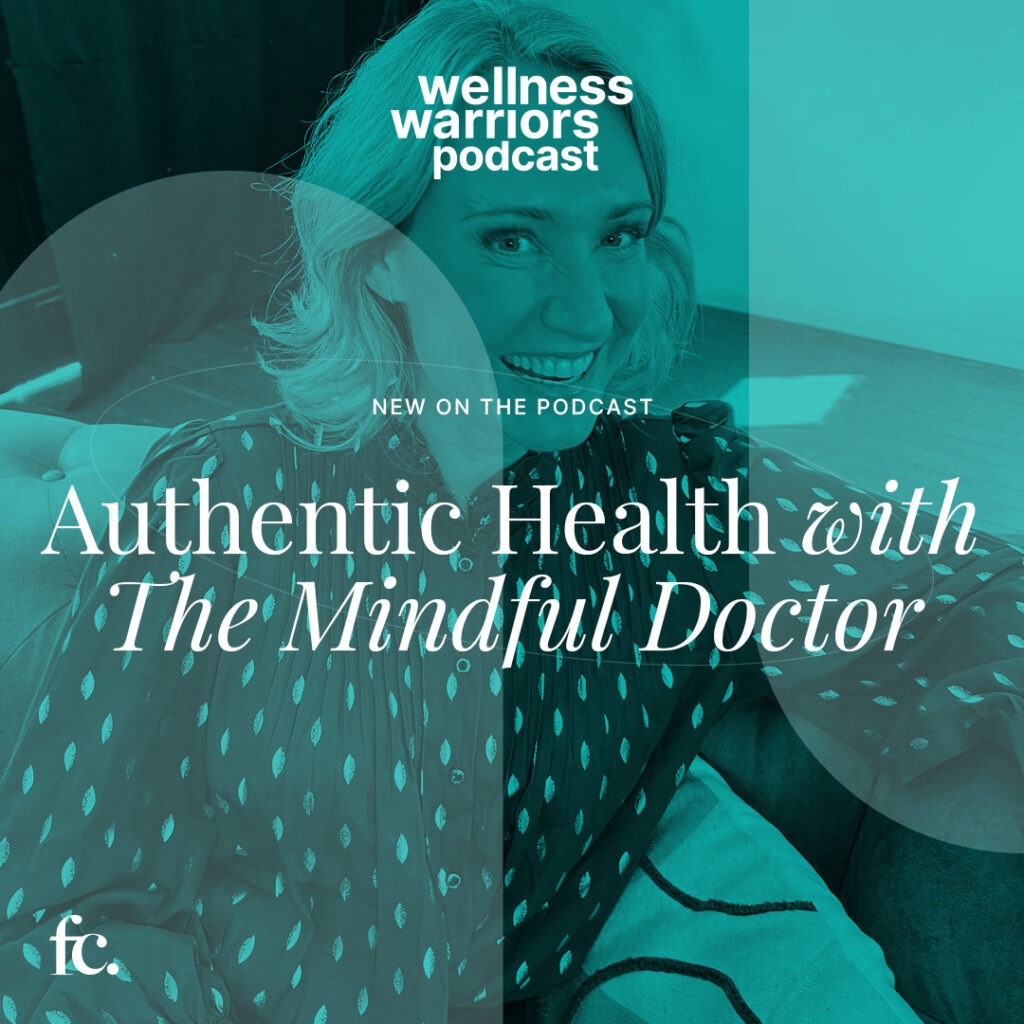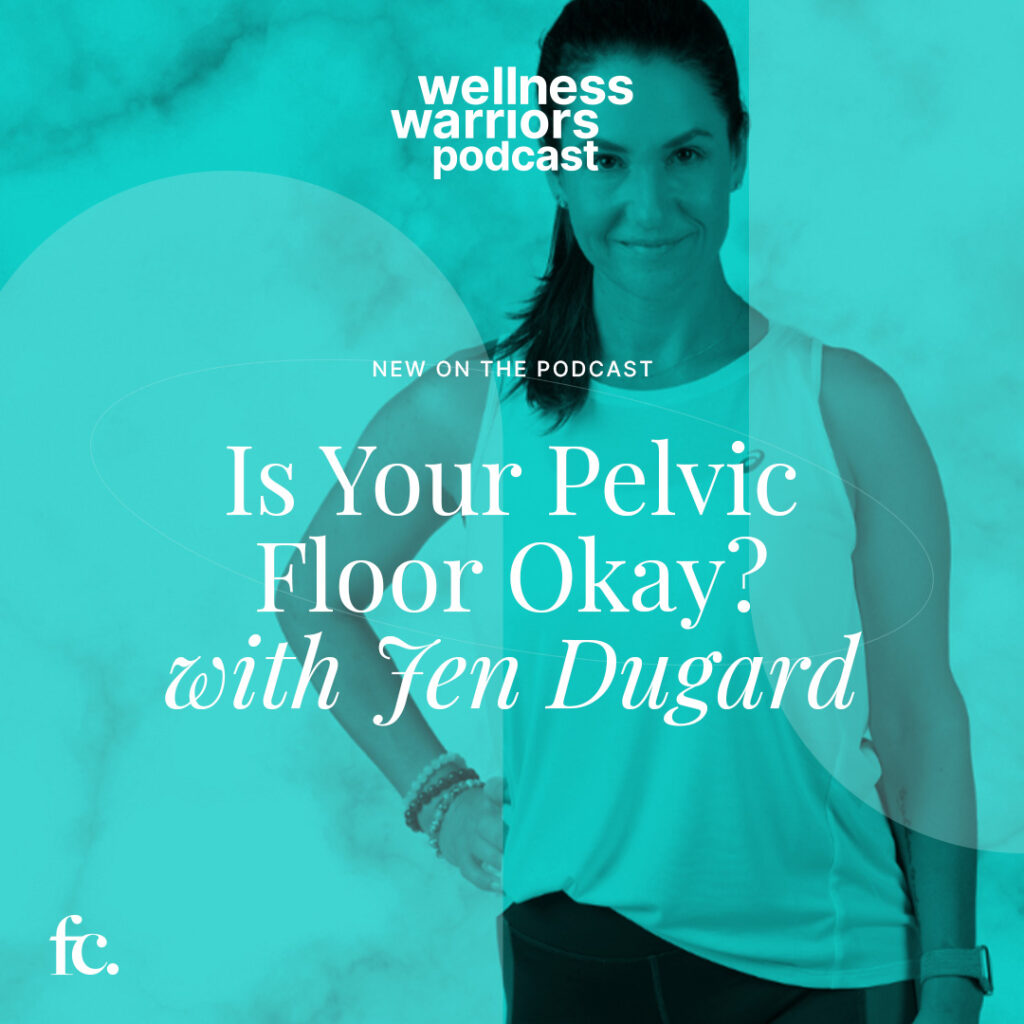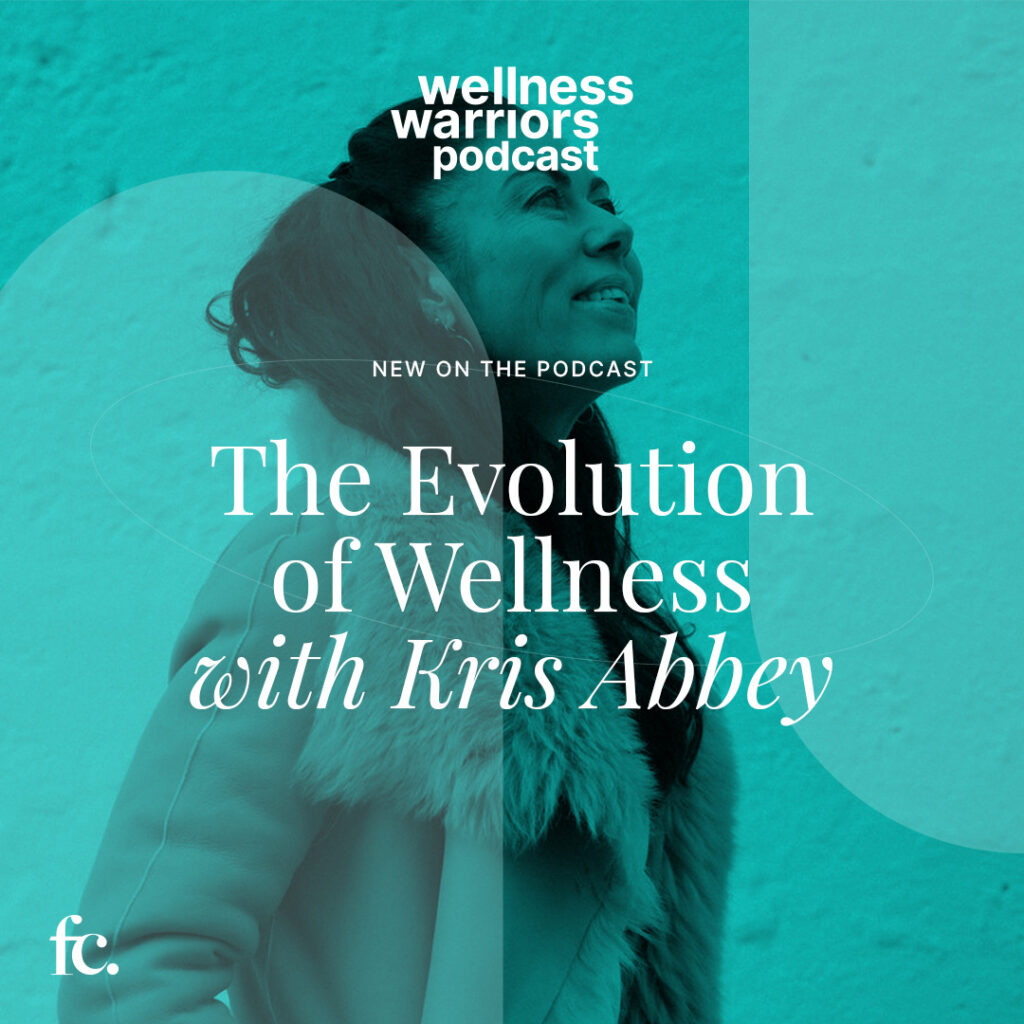Longevity Through Nutrition
with Amazon Bestseller Author
Dr Liz Isenring
Dr Liz Isenring is a Professor of Nutrition and Dietetics, Advanced Accredited Practising Dietitian and Nutritionist, author and speaker. In this highly informative episode, Dr Liz shares how nutrition can help with leading a long and healthy life. She started her career as a hospital dietitian supporting people with cancer to improve their quality of life via medical nutrition therapy. Over the next 20 years Dr Liz worked in university, hospital and research fellow positions including at the University of Queensland and Queensland University of Technology. Most recently Dr Liz was Head of Program for the newly established Master of Nutrition and Dietetics Practice program at Bond University where she led a high performance team to gain full accreditation. Recognised as an international nutrition and wellness expert, Dr Liz has published over 150 peer-reviewed scientific papers and an Amazon bestselling book.
During a time when two friends were diagnosed with cancer, Dr Liz was inspired to start “LINC Nutrition”, a consultation program designed to be the link between hospital and at home care. Over this period, she experienced burnout and after rediscovering the power of nutrition, Dr Liz improved her energy and fitness and was motivated to help other busy leaders get healthy and stay healthy, with a focus on work-life balance, stress, anxiety and depression. Dr Liz shares the 3 pillars of mindset, menu and movement as part of her program and also the importance of gut health.Download your free copies of her book “The Path to a Stronger Immune System” and her informative infographic “The Gut Map” here https://lincnutrition.lpages.co/freedownloads/

Show Notes:
Felicity – I’d love to start with where your whole career journey started. You started out with dietetics and you were working in a hospital setting. Tell me a little bit about your history and where things started for you.
1:09 – I’ve been a dietitian and nutritionist for over 20 years, starting my career at the Wesley hospital in Brisbane where I gravitated towards helping people with cancer, where I helped to manage the nutritional issues in the oncology ward. The key focus was to help people cope better with their treatment by feeding them the right nutrients.
Felicity – At that point in your career were you first were exposed to the world of research?
2:25 – At heart, I’m a clinical dietitian because I love helping people through food, but working at the hospital I soon realised with nutrition being a new science, there was a lot we didn’t know. Fortunately, I had amazing mentors and links with the universities, so I was exposed to different research projects. I started off with smaller projects, like gathering data from patients and could see the benefits already, so from there I went on to bigger studies and that’s when I then decided that I need to make a difference. At that time I figured the best thing I could do was get my PhD that had taken me a couple of decades, but now I am leading some of Australasia’s largest nutrition trials.
Felicity – As a research professor and Dean of Faculty at Bond University, leading up so many different people and projects over that time. The volume and the number of studies that you’ve personally contributed to and being a part of are pretty astounding.
3:52 – It is pretty amazing to look back at the work I have done and the opportunities that I was given. Over a decade ago I received the international Young Investigator award, which I’m very proud of as it’s a prestigious award, but the most beautiful part for me is that just a few years ago one of my students had received the same award, which felt like a full-circle moment. I may have had some wonderful achievements that have led to improved care, which I’m very proud of, but equally as proud that I’m able to help the next generation making their own waves in improving care. Since graduating with my PhD, I have published over 150 peer-reviewed scientific papers and an Amazon bestselling book.
Felicity – Through some of your research projects and some of the work that you have been involved with, what will be some of the standouts in terms of, for you from your own personal, passionate kind of direction, what are some of the standout features or stand out projects that you’ve really loved and seen really great impact from?
5:35 – One that first comes to mind is in the area of supporting people through cancer treatments. We have successfully proven that through a good amount of protein and a nourishing diet, and occasionally with the support of supplements, that it helps people tolerate their treatment better with fewer side effects and less frequent admissions to the hospital. Through my research, they are now considered as gold standard international guidelines, used by doctors and nurses around the world. Secondly is my work on malnutrition in older adults, unfortunately uncovering things that we have known about for a long time, but the challenge is the poor quality of food in aged care, with a majority of aged care homes having a budget of only $7 a day to cover all meals, including tea/coffee and snacks.
Felicity – That really shocks me and it really makes me feel like they’re just missing out on fresh, healthy food and the nutrients that they need to function well.
7:31 – There are some real challenges there, as the food alone is something they don’t enjoy and doesn’t have the nutrients they need. A former PhD student of mine, Dr Cherie Hugo, has started the Lantern Project, which is an international project focused on bringing in more nutritious and appealing meals in aged care homes. With one in two adults malnourished in aged care, it’s this kind of work that has proven better quality of life through nutrition that can really make a difference. I’m really proud of myself and my team for the work we have done because it’s really instrumental in raising awareness and the challenges, but more positively, showing that there is a lot we can do, despite it being a complex issue, if we all work together we can get there, starting off with a decent food budget.
Felicity – On the subject of malnutrition, in an obesogenic patient population that we’re dealing with all the time, there’s this common misconception that when I have bariatric surgery, how am I going to actually survive and get adequate nutrition? And what many people don’t understand is that as an overweight or morbidly obese patient, the ability for the body to actually absorb good nutrition is compromised already.
9:42 – Obesity is a form of malnutrition, which is a challenge because malnutrition isn’t always associated with being overweight or obese, in fact, most people think of the opposite. We need to focus on why people might have excess fat, then ensure they are getting the right nutrient, vitamins and minerals. This is also an issue in aged care, unfortunately, they’re often fed a lot of refined starch and processed food, rather than good quality food and protein sources.
Felicity – I think number one is let’s try and keep people out of aged care, but also I think it’s a really big community responsibility that we all need to take on board. It’s really important work that you’re doing in that space, and something that I think is a bit of a wake-up call for all of us.
12:32 – We know what the issues are and we know what some of the solutions are. As for the general public, we definitely need more awareness raised on the issue of malnutrition in aged care. But also we as individuals need to start thinking earlier, as early as our thirties, and to take some personal responsibilities in regards to our health by building muscle mass and developing those really healthy foundations. If we start earlier, we can focus more on prevention and really stretch out a good quality of life for so much longer.
Felicity – Tell me about how you work with your cancer patients that are external to just their nutrition and some of the other things that you advocate for.
15:30 – Up until recently, my focus was based on the science side of nutrition, but what really encouraged me to have a more holistic approach was after a couple of friends of mine were diagnosed with cancer and seeing their journey so personally was a wake-up call. There is some wonderful care in hospitals, but unfortunately, there are also some really bad ones too. Both had different types of cancer and undergoing different types of treatments, and what really struck me was that neither of them had been approached about nutrition. This was one of the main reasons I started Link Nutrition, to be that link to help fill those gaps in care and to provide the cutting edge research that nutrition can improve care for people with cancer and get it to people who need it now, rather than later.
Felicity – You had this incredible academic career, high energy, incredible output and productivity that led to a moment in your life where you refer to that as academic burnout. And I think it was at that point in your career that you were also dealing with your friend’s cancer?
18:15 – I’m a clinical dietitian but an academic at heart, naturally curious, I need to know how, and why things work. My world had imploded, and looking back, everything happened at once in my midlife which was very stressful and I was definitely heading towards burnout. I didn’t realise it though, I just thought it was normal at that stage in life with elderly parents and two teenage daughters. Ironically as a nutritionist, I was not looking after my own personal self-care.
Felicity – I would say that you’re not dissimilar to a lot of other professionals in their chosen, specific field that, you know, you can impart knowledge and share and mentor others. But what you’re actually doing behind closed doors to care for yourself can often be the total opposite because you’re so focused on everybody else first.
20:29 – It wasn’t until I started talking about it openly that many doctors, nurses and high-level execs started to reach out, in particular with women. For women there are many things happening in life to take care of like managing families, elderly parents and all these other challenges as well, and we’re so good at putting out the fires and solving everyone else problems that we forget to take care of ourselves.
Felicity – I love some of the work that you’ve put into your Link Nutrition programs regarding how to manage burnout. And I’ve used some of your tools myself to better manage stress and work-life balance, which I think it’s a big concern for everybody. And, and I’ve actually seen not just the women, but also men who are going through the COVID phase have had some pretty significant burnout kind of issues.
21:28 – Over the past 20 years working in the field, I have never seen as much burnout as I have in the past few months in both men and women. Even those we look up to, that we think have everything are also under extreme stress and pressure, so unfortunately there is burnout there, but the good news is there is quite a lot we can do to help improve that.
Felicity – What are the support mechanisms? What are the programs and what are the channels and opportunities for helping assist in guiding and making sure that we’re resolving some of these issues to move ahead and beyond. What are some of the features about your Linked Nutrition programs that you’re running that support people going through phases like this in life?
22:22 – It’s not just about nutrition, as I like to take a more holistic approach with the three pillars of health and wellbeing, mindset, menu and movement. These are all simple and achievable things. When it comes to mindset it’s about setting boundaries and self-awareness. Awareness is the first step then next is to act on it, it’s amazing what becomes a habit, and then of course you feel good once it starts, and naturally once you have a positive cycle you want to stretch yourself further and do more which would end up with me spending more time on my self-care. Ironically I’m more productive now than before, I used to feel like I was that busy I couldn’t even run off to the toilet, whereas now I spend more than an hour on my self-care every day. In many competitive, high-performance jobs, people tend to wear that ‘busy-ness’ as a badge which made it hard to reach out.
Felicity – That’s a dialogue, a conversation that needs to be more openly had and raised awareness around, what does that look like and how do we connect better? It’s everybody, it’s not just me or you, or someone who’s overweight or morbidly obese, it’s actually a concept that I think going to better allow you to get the best out of everyday life and be more productive every day and feel better. If we can teach more and more people, all of those pillars of wellness and how to actually explore them and incorporate them into everyday life, they’re going to live so much better.
26:29 – Unfortunately organisations don’t see it as increasing staff morale and productivity, they have health and safety but it’s not focused on staff wellbeing whether it be mental or physical. Studies have shown that wellbeing programs, whether it be nutrition or physical activity have led to less staff turnover and greater staff morale.
Felicity – We’re both very passionate about research and evidence-based medicine and looking at opportunities where we can actually demonstrate from results, how we can actually improve so many different things across the board, especially when it comes to nutrition. I’m really passionate about is kids and I feel like that’s something that really does need a lot more work because we know that the rate of increase in childhood and adolescent obesity continues to increase. And along with that, the type two diabetes figures are pretty shocking and scary. We want to take that burden away from our health system, but we want our children to be able to function well, to grow into healthy adults, perform better at school and have better self-esteem. What are some of the things that you think are important around what do we need to do as a society to better care for our children?
28:57 – A lot comes down to our own responsibilities but also the support of the community and organisations. It’s unfortunate that when you go into a grocery store, the things that are always on sale are unhealthy options and healthier food does appear to be more expensive. You can make yummy food that is economical but unless you have that knowledge and awareness it doesn’t seem to be the case, and this is something I see often in the medical clinic, with families living off very unhealthy food as they believe that is all they can afford. People are coming in younger and younger with type 2 diabetes, which once upon a time was unheard of. When it comes to health in kids, it’s not just nutrition, it’s that multidisciplinary approach, like we did with Project GRIT, and helping build a child’s confidence. Education needs to start early, and people are worried about the big brother approach and giving people complexes and eating disorders but it’s not about that, it’s about doing it in a supportive multidisciplinary environment that’s fun and encouraging that can lead to lifelong benefits. I believe the government should be investing more into programs that help support and educate kids, as they could save a lot of money by tackling it rather than having more people hit their 40s or 50s with five chronic conditions.
Felicity – What’s next for Link Nutrition? Tell us all about what is that pathway now you’ve developed this incredible new business approach.
33: 01 – Especially with the pandemic, I’ve seen more people with stress and burnout which has resulted in emotional eating and drinking. I’ve put together all the complex science and developed the Gut Map which is a super simple, fun and easy infographic that includes the 3 M’s. People don’t realise that 70% of our immune tissue is actually located around our gut, so it’s important to have good gut health to strengthen our immune system. It focuses on building that good gut bacteria because they actually send signals to our brain that influence our mood, food cravings and how well we sleep.
Felicity – I love the whole concept of talking about mood and food and the impact that it has on how we function. Can tell me more about some of the things that are important to understand around food and mood?
36:07 – Basically our gut and our brain talk to one another, an example of how it affects our moods is when you have to give a speech and you feel those butterflies in your stomach or have to run off to the toilet. Our body is used to living off things found in nature, so when you eat things like junk food, your gut doesn’t recognise it which can cause problems, creating an overgrowth of bad bacteria sending the wrong signals to our brain like wanting more of that particular food leading to healthy cravings. So if people are experiencing low mood, anxiety or depression, nutrition is a key part of helping with that. Some may need to go onto medication, but I will always argue to look at the basics first, get your nutrition right, make sure you’re sleeping well, getting some sunlight and fresh air, and combining it all with a healthy mindset and movement.
Felicity – In this patient population in here as well, depression and anxiety, really are these comorbidities that we see in many of our patients We’re lucky that we’ve got this incredible team, the psychologists obviously help with managing a lot of those issues, but food, the nutritional factor is so vital and putting all the pieces to the puzzle together, I think is key in making sure that we’re creating some kind of impact and change.
38:35 – Research and education around gut health are only going to grow. It’s great to see people going vegetarian or vegan but there are concerns around manufactured vegan meats because they are still processed, from existing research we know that once we start to mess around with something, down the track it doesn’t necessarily lead to benefits for our health.
Felicity – We need to go with the lowest possible human intervention. I really am a great believer in everything in moderation, that was the philosophy that I grew up within a family that there’s no bad foods, only bad eating habits. Definitely lower human intervention when it comes to looking at cutting out some of those processed foods, that’s a really good concept.
39:59 – I live by the 80/20 rule as I’m a self-proclaimed foodie and food is such an important part of our culture and community. Unfortunately, people think that dietitians are going to make you give up on delicious meals and live off lettuce which is not the case.
Felicity – We love our dietitians, they are definitely not the food police! And you know, we love to be able to give back that enjoyment of food, that pleasure of the table should still be critical with family, with friends and entertaining. Liz for you, describe what does wellness mean for you?
41:03 – Wellness for me is having enough energy to do everything I want to do and still be the best version of myself and my loved ones. Also just being passionate about life, living from the inside out. It’s not about looking good, it’s about the energy, strength and confidence to do what you want to do.







